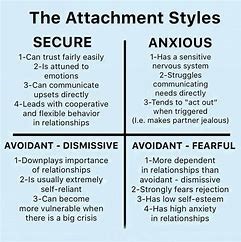Introduction to ‘The critical period of the first 1001 days’
In this sprint you will develop the following knowledge:
- I understand that the first 1001 days, starting in pregnancy are a critical time for development and also a time when babies are at their most vulnerable.
- I understand that the experiences a baby has in the first years of life affects the developing brain through the process of synaptic connections being made through frequent repetition and stimulation of new learning. These are the building blocks of the brain.
An Early Years Health Development Review was undertaken in July 2020. This focused on how to improve the health and development outcomes for babies in England. The first 1001 days are the point at which a woman becomes pregnant until a child is aged 2.

Read: The best start for life: a vision for the 1001 critical days.
<undefined></undefined>
GOV.UK
Read pages 16 to 18 in the document below to help you think about why the first 1001 days are important. You can access the full document here if you’d like to read more.

Stop and Reflect:
After reading pages 16 to 18 of the document above, make some notes about:
- How the brains architecture is built?
- How experience (nurture) shapes how genes (nature) are expressed?
- The foundations of cognitive, emotional and social capabilities are formed in this period?
- Stress and adverse experiences in the 1,001 critical days can have lifelong impacts?
Develop your understanding of ‘The critical period the first 1001 days’

You have now read about why the first 1001 days are so critical, considering the impact on the brain and how nature and nurture affects babies. You have thought about the cognitive, emotional and social capabilities of babies and how stress and adverse experiences can have lifelong impacts.

Watch: The First 1000 Days
<undefined>Johan Morreau. TEDxTauranga</undefined>
Johan Morreau | TEDxTauranga
Watch the 14-minute TedTalk below where Johan Morreau explains the importance of the critical period 1001 days.

Read: Sharing the Brain Story
NSPCC Learning
To expand on what we have covered so far, read page 3 and 4 of this NSPCC booklet below and make some notes about what the architecture of the brain does and the serve and return metaphor.
Reflect upon ‘The critical period the first 1001 days’
Let’s reflect upon how theoretical ideas might help us to understand the importance of the first 1001 days. Mary Ainsworth (1913-1999) and John Bowlby (1907- 1990) have developed theoretical ideas around attachment.

Watch: How Does The Attachment Theory Affect Your Childhood Life?
<undefined>Johan Morreau. TEDxTauranga</undefined>
Psych2go
This video talks about the four attachment styles, as well as how you can spot them at work or school, in relationships, and in a crisis. Watch the video below and make some notes about the importance of attachment in the early years.

Further Reading
These 2 webpages will provide you with more information about the importance of the first 1001 critical days.
Further Training
The Department for Education has developed a series of early years child development training modules that are free to anybody working in a nursery or as a childminder.
The modules include:
- Module 1: Understanding child development and the EYFS
- Module 2: Brain development and how children learn
- Module 3: Supporting children’s personal, social and emotional development
- Module 4: Supporting language in the early years
- Module 5: Supporting physical development in the early years
- Module 6: Mathematics
When thinking about the importance of the critical period the first 1001 days you might want to undertake module 2: Brain development and how children learn; you will need to set up a free account to access this content.






